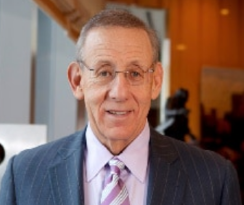Call for New Elections in Haiti
Washington, D.C. – 19 Haitian and international policy and legal groups and human rights organizations called on the Obama administration to “cease supporting the OAS Verification Mission recommendations”, something they consider “an attempt to arbitrarily change the results of the elections and force the people of Haiti to accept an election …that do[es] not express [their] will.” Signers include the Center for Constitutional Rights, TransAfrica Forum, the Institute for Justice & Democracy in Haiti, Haiti Konpay, Unity Ayiti, and 14 others.
The statement urges “the U.S. administration” to “work with Haitian authorities to carry out the fair and inclusive elections that Haiti needs in order to move forward.
“Though it may take a few more months to meet the necessary conditions for such elections to be held, the benefits for Haitian democracy and recovery far outweigh the potential costs,” it concludes.
The statement follows Secretary of State Hillary Clinton’s visit to Haiti over the weekend, in which she reiterated U.S. pressure for Jude Celestin, the candidate favored by President Preval, to be removed from the second round of elections, now scheduled for March 20.
The call for new, “fair and inclusive elections” echoes that of 12 of the 19 first round candidates, who recently called again for the first round elections to be scrapped and new elections to be held.
U.S. Congressman John Conyers also called for new elections in a separate statement: “I disagree with [Secretary of State Clinton’s] unequivocal support of the Organization of American States’ (OAS) recommendations addressing voter fraud in the previous election. In order to ensure that all Haitian voices are heard in this election, the electoral process should be restarted.”
The full text of the NGOs’ statement follows:
Haitian and international organizations call on US administration to support genuinely “free, fair and credible” elections in Haiti
Over the last few months, the Obama administration has repeatedly stated that it wishes to see elections in Haiti that “reflect the will of the Haitian people.” As recently as January 21st, State Department Spokesman P.J. Crowley reaffirmed that the “focus” of the U.S. government is “ensuring a free, fair and credible election process in Haiti.” Despite these pledges, we note with great dismay that the administration continues instead to endorse the deeply flawed presidential and legislative elections that took place on November 28, 2010. Worse still, the U.S. State Department, through recent statements and actions, has been putting extraordinary pressure on Haitian authorities to implement the arbitrary recommendations of an Organization of American States (OAS) “Expert Verification Mission” and modify the results of the first round of the elections.
Long before the disastrous November 28th vote took place, numerous Haitian civil society groups and foreign observers, including 45 U.S. members of Congress, voiced their concern regarding the undemocratic character of the elections. On the one hand, Haitian authorities ignored widespread calls to reform the country’s Provisional Electoral Council (CEP, by its French initials), widely seen as beholden to President René Préval, and reverse its decision to exclude over a dozen political parties, including Haiti’s most popular party, Fanmi Lavalas. On the other hand, inadequate measures were taken to ensure that eligible voters among the million and a half Haitians displaced by the earthquake would be able to access the polls. The U.S. government, as the top funder of Haiti’s elections, contributing $14 million, had enormous leverage over the entire electoral process but chose not to insist on any standards to ensure “free, fair and credible” elections.
Despite the failure to resolve these immense problems, and the additional challenge of an out-of-control cholera epidemic, the Obama administration and other foreign entities insisted the elections take place on November 28th. The results, as predicted by civil society groups, were catastrophic. Voter turnout – at under 27% – was the lowest that Haiti, or any other country in the hemisphere had seen for a presidential election in at least 60 years. Irregularities were so prevalent that it was impossible to have any faith in the recorded outcome of the vote, according to election observers, media reports, and independent examination of the official results. As a result, a dangerous and debilitating political crisis was unleashed on a nation already overwhelmed by an ongoing humanitarian crisis.
As calls for new elections multiplied within Haiti, and from many of the presidential candidates themselves, the U.S. administration threw its support behind an OAS “Experts” Mission, tasked with analyzing the vote results and providing recommendations to the CEP. The Mission acknowledged that “by any measures, these were problematic elections” and identified “significant irregularities” that “influenced the outcome of the first round of the elections.” Yet instead of recommending new elections, the OAS Mission simply recommended that the CEP modify the electoral results in such a way that ruling party candidate Jude Celestin would drop from the second to third place ranking and thereby be prevented from advancing to the second round of the elections. As the Washington-based think tank Center for Economic and Policy Research noted in an issue brief, “the Mission’s analysis does not provide any basis – statistical or otherwise – for changing the result of the first round of the presidential election.” Simply put, the extent of irregularities, lost votes and quarantined votes (amounting altogether to about 20 percent of total votes), makes it impossible to accurately determine which two candidates won enough votes to advance to the second round.
The U.S. administration, which previously had neglected to take any effective measures to help ensure free, fair and inclusive elections, now appears to be deploying intense pressure to force the Haitian authorities to accept the OAS Verification Mission’s arbitrary recommendations. Senior administration officials, as well as officials from France and Canada, have made numerous threatening statements in recent days. On January 20th, the U.S. top representative to the United Nations, Susan Rice, urged “the Provisional Electoral Council to implement the OAS recommendations” and suggested that “sustained support from the international community, including the United States” could be suspended if the Haitian authorities decided otherwise. At around the same time, the US announced that it had revoked the visas of a “couple dozen” government officials and in Haiti news circulated that these revocations had targeted leaders of the ruling party INITE. Two days later, INITE officials announced that – following international “intimidation” – they would “agree to see [Jude Celestin] withdraw his candidacy.” Celestin, however, has so far refused to withdraw his candidacy.
On Sunday, January 30th, Secretary of State Hillary Clinton added another layer of pressure to the administration’s demand when she made a surprise visit to Haiti and announced to journalists that “we’ve made it very clear we support the OAS recommendations and we would like to see those acted on.”
As many Haitians have pointed out, the administration’s coercive methods are not only disrespectful of what remains of the small nation’s sovereignty, they are also likely to exacerbate a growing political crisis. The deeply flawed nature of these elections cannot be “solved” through the application of arbitrary recommendations that favor one political candidate over another. Haiti will only have the legitimate and accountable elected authorities it requires to carry out the daunting tasks of recovery and reconstruction once genuinely “free, fair, and credible” elections that “reflect the will of the Haitian people” take place.
We therefore call on the U.S. administration to cease supporting the OAS Verification Mission recommendations. This constitutes an attempt to arbitrarily change the results of the elections and force the people of Haiti to accept an election and electoral process that do not express the people’s will. Furthermore, we request that the U.S. administration work with Haitian authorities to carry out the fair and inclusive elections that Haiti needs in order to move forward. Though it may take a few more months to meet the necessary conditions for such elections to be held, the benefits for Haitian democracy and recovery far outweigh the potential costs.
Institute for Justice & Democracy in Haiti
TransAfrica Forum
United Methodist Church
General Board of Church and Society
Konpay
Center for Constitutional Rights
Gender Action
National Lawyers Guild International Committee
National Lawyers Guild Task Force on the Americas
Just Foreign Policy
Let Haiti Live
Bri Kouri Nouvèl Gaye
Environmental Justice Initiative for Haiti
Other Worlds
Global Exchange
Grassroots International
UnityAyiti
Honor and Respect Foundation
Latin American and Caribbean Community Center
You.Me.We.



